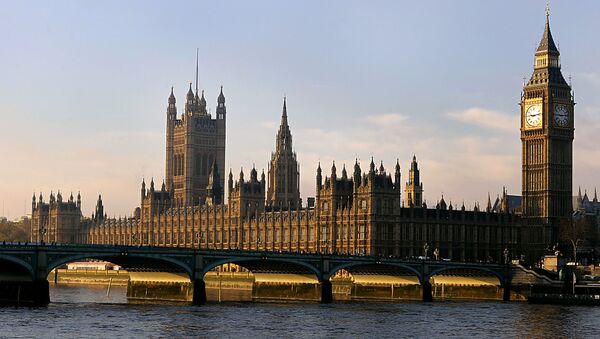In Prague's stance on European security after the fall of communism, London saw a danger to the existence of NATO and it worked to nip the Czechoslovak "complicated ideas" in the bud.
In the spring of 1990, Czechoslovakian President Vaclav Havel and Foreign Minister Jiri Dienstbier came to London to advocate their vision of a Europe secure and free from the Atlantic to the Urals.
Both favored the eventual dissolution of the Warsaw Pact and NATO and the withdrawal of Soviet and US forces from Europe.
The moral authority of Havel, a staunch opponent of communism who had endured jail to emerge as probably the most prominent East European leader of the time, was so high that London was worried his ideas for a new security arrangement in Europe would be contagious and detrimental to the very existence of NATO.
British Prime Minister Margaret Thatcher's advisers urged her to "stiffen" her response and impress on Czechoslovakia the need to keep NATO and American troops in Europe.
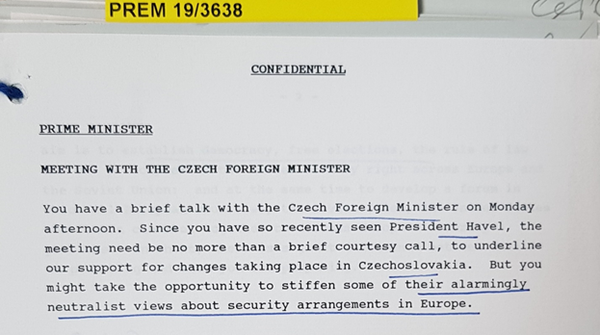
She deemed the need to challenge Havel's proposals personally so important that she skipped a Queen's Awards reception that had been customary for prime ministers to attend. Instead, she spent most of the day trying to talk Havel out his "alarming" ideas.
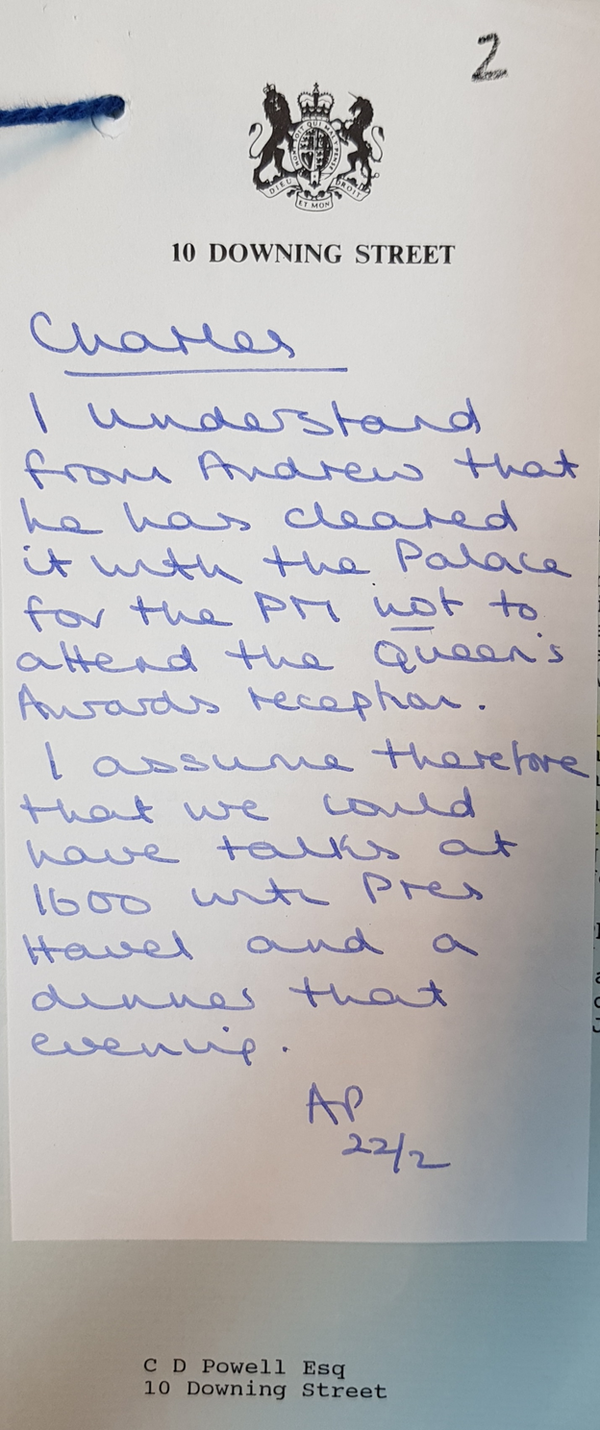
NATO was still essential to European security and it was the most stable and reassuring solution for all — including the Soviet Union, "whose concerns we must respect" [emphasis added], Thatcher told Havel.
Havel's solution did meet Soviet concerns: both NATO and the Warsaw pact should be disbanded and replaced by a pan-European security system constructed through the Helsinki Process.
At the Warsaw Pact meeting on March 17, 1990, Dienstbier proposed a new European order without blocs. Dienstbier advocated a collective agreement on European security stemming from the Helsinki Process. The core of any agreement on the matter, he said, must be a treaty committing signatories to come to each other's aid in case of attack [NATO's Article 5 applied to all European countries without exception]. Such an agreement should cover peaceful settlement of disputes, "from San Francisco to Vladivostok."
An executive body with two chambers, one of Foreign Ministers and a subordinate one of Defense Ministers, would act as a European security commission, with a permanent secretariat. Dienstbier offered Prague as a possible seat of the secretariat. Eventually, the new pan-European security arrangement might lead to an organization of European states involving existing structures such as the Council of Europe, and, finally, to a European federation.
Dienstbier's proposal was an elaboration of Havel's views which he expressed on quite a few occasions. The British government's attitude to the pronouncements of the otherwise-venerated champion of democracy and human rights was expressed in Cabinet memos to Thatcher:
"[Y]ou are already familiar with some of his speeches, which show a remarkable quality of thought and language, but not much practical grasp of difficult issues."
In her meeting with Havel on March 21, 1990, Thatcher tried to persuade him that she wanted to move in the same direction, but at a more realistic speed.
She said she was looking to a "wider Europe, bringing in the East European countries and the Soviet Union. Nonetheless, existing structures in Europe, above all NATO, had served us well and preserved our liberties. We should not easily give them up until we were certain there was something better to put in their place."
Thatcher explained to Havel that the West had two tasks.
"The first was to manage a transition to a new order in Europe. In this phase we had to keep NATO, maintain the European Community and extend its links with Eastern Europe, and absorb the unified Germany. The second task would be to build an entirely new structure of security in Europe, based on extending democracy from the Atlantic to the Urals and beyond.
It was simple to describe the tasks but they added up to a massive responsibility for the present generation of leaders in Europe."
This explanation suggested that Thatcher was not talking about extending NATO further east.
Havel, for his part, acknowledged that "several East European countries [Hungary and Poland — Sputnik] would like just to join NATO and make that Europe's new security system. But it would be a terrible blow to the pride and prestige of the Soviet Union, equivalent to losing the third world war."
There had to be some new system that would also take account the fact that Europe was no longer divided into two halves, although it might be possible to accommodate NATO within that new system. He did not want the prime minister to have the impression that the Czechs were rascals who simply wanted to abolish NATO. They wanted instead to preserve the best of it without giving a fatal push to Russia President Mikhail Gorbachev at the very moment when the Soviet Union was in danger of falling apart.
Havel's aim, he told Thatcher, was to transform the old Europe into a new Europe, with a security system adapted to new reality and new threats.
Briefing Thatcher before the meeting with Dienstbier, Charles Powell warned her that the Czech foreign minister had some "alarmingly neutralist views about security arrangements in Europe." Thatcher should "stiffen" her response.
"Mr. Dienstbier has "produced some rather complicated ideas for a European security organisation [underline by Powell] based on the Helsinki Agreements which would replace both NATO and the Warsaw Pact."
"The basic message to get over to him is that we need to walk before we can run. We should stick to the tried structures of NATO (and even the Warsaw Pact) while we concentrate on political and economic reform in the former Communist countries."
So great was Western desire to keep NATO that they were even prepared to tolerate the existence of the Warsaw Pact in some form rather than have the Organization for Security and Cooperation in Europe take its place.
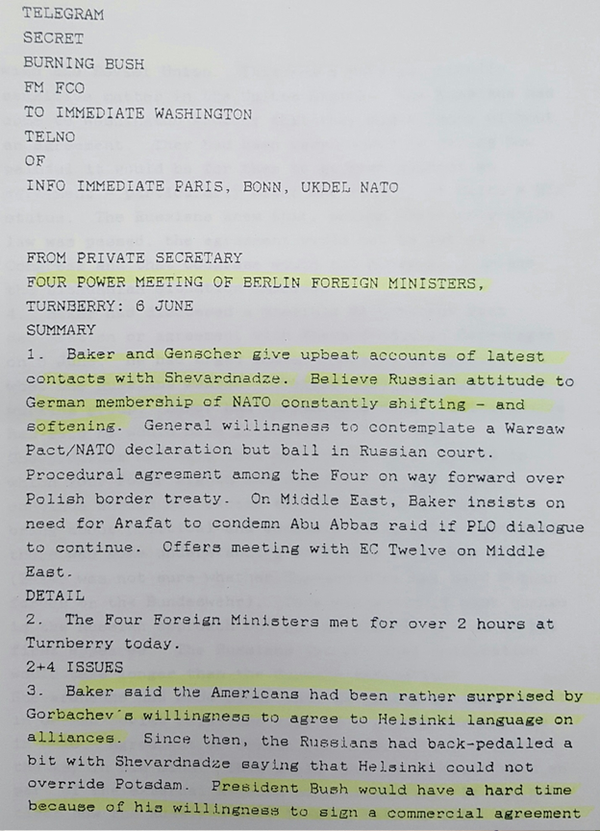
At a NATO foreign ministers summit at Turnberry on June 6, 1990, a day before Thatcher flew to the Soviet Union to meet Gorbachev, the British, American, German and French ministers met separately behind closed doors to agree that "the threat to the Alliance's continuation might be less significant from a weakened Warsaw Pact than from the new structures within the OSCE. We could find it harder to argue that the Alliance was necessary if strengthening the OSCE were the center of discussion."
Thatcher's task on her visit to the Soviet Union in the next few days was to convince Gorbachev that he had nothing to fear from NATO.
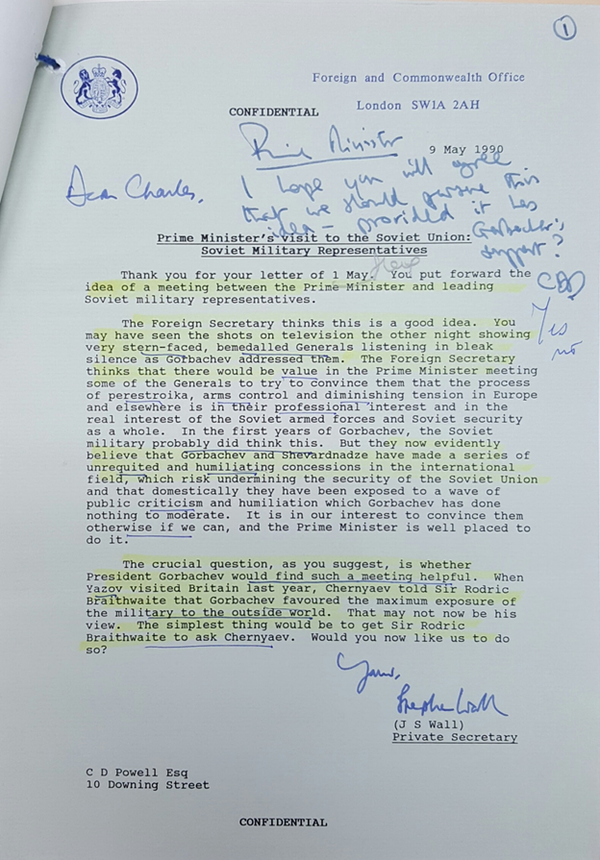
The rest is history.

